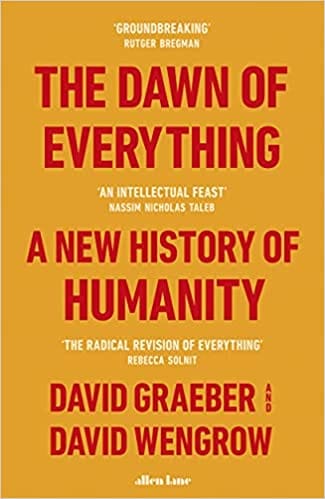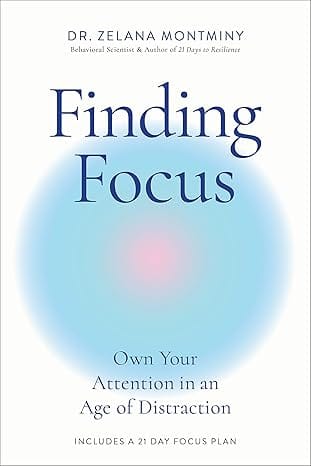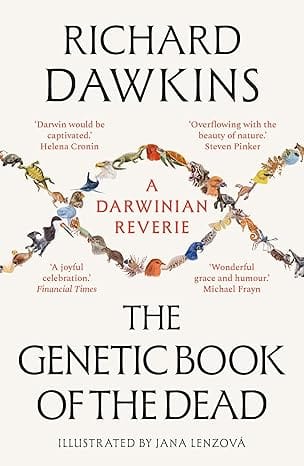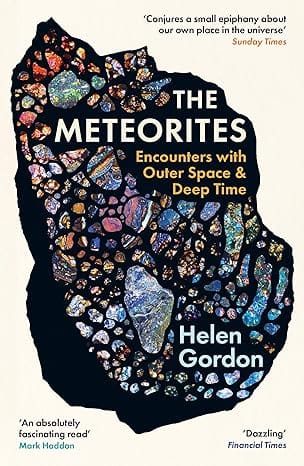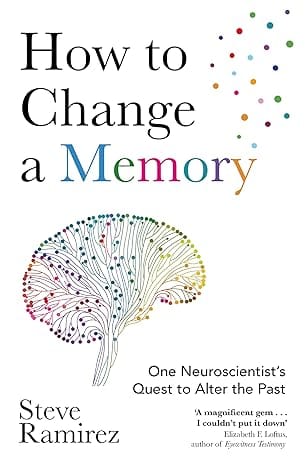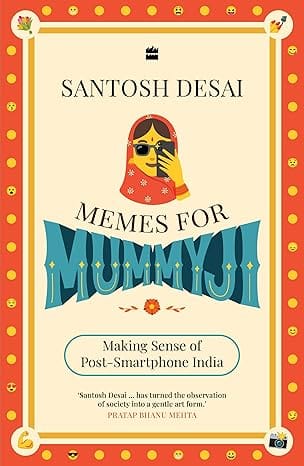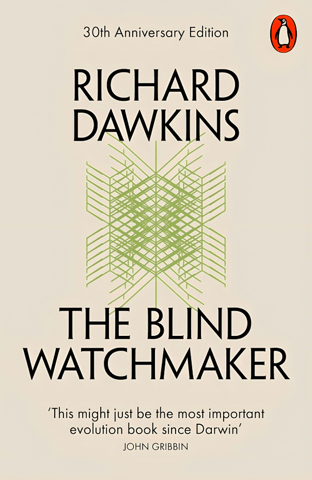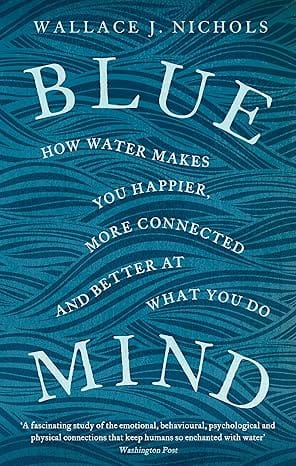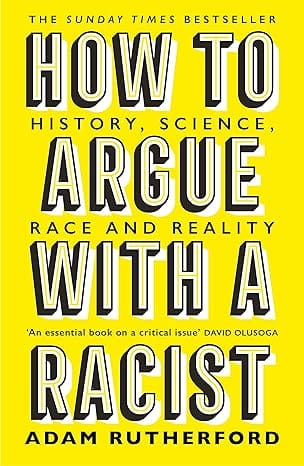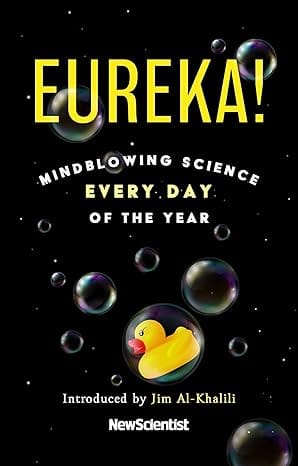- Non-ficton
- Non-ficton
- Contemporary Fiction
- Contemporary Fiction
- Children
- Children
- Comics & Graphic Novels
- Comics & Graphic Novels
- Non-Fiction
- Non-Fiction
- Fiction
- Fiction
For generations, our remote ancestors have been cast as primitive and childlike - either free and equal, or thuggish and warlike. Civilization, we are told, could be achieved only by sacrificing those original freedoms or, alternatively, by taming our baser instincts. David Graeber and David Wengrow show how such theories first emerged in the eighteenth century as a reaction to indigenous critiques of European society, and why they are wrong. In doing so, they overturn our view of human history, including the origins of farming, property, cities, democracy, slavery and civilization itself.
Drawing on path-breaking research in archaeology and anthropology, the authors show how history becomes a far more interesting place once we begin to see what's really there. If humans did not spend 95 per cent of their evolutionary past in tiny bands of hunter-gatherers, what were they doing all that time? If agriculture, and cities, did not mean a plunge into hierarchy and domination, then what kinds of social and economic organization did they lead to? The answers are often unexpected, and suggest that the course of history may be less set in stone, and more full of playful possibilities than we tend to assume.
The Dawn of Everything fundamentally transforms our understanding of the human past and offers a path toward imagining new forms of freedom, new ways of organizing society. This is a monumental book of formidable intellectual range, animated by curiosity, moral vision and faith in the power of direct action.
Review
What a gift ... Graeber and Wengrow offer a history of the past 30,000 years that is not only wildly different from anything we're used to, but also far more interesting: textured, surprising, paradoxical, inspiring. -- William Deresiewicz ? The Atlantic
Iconoclastic and irreverent ... an exhilarating read ... As we seek new, sustainable ways to organise our world, we need to understand the full range of ways our ancestors thought and lived. And we must certainly question conventional versions of our history which we have accepted, unexamined, for far too long. -- David Priestland ? The Guardian
Pacey and potentially revolutionary ... This is more than an argument about the past, it is about the human condition in the present. -- Bryan Appleyard ? Sunday Times
A fascinating, radical, and playful entry into a seemingly exhaustively well-trodden genre, the grand evolutionary history of humanity. It seeks nothing less than to completely upend the terms on which the Standard Narrative rests ... erudite, compelling, generative, and frequently remarkably funny ... once you start thinking like Graeber and Wengrow, it's difficult to stop. -- Emily M. Kern ? Boston Review
A timely, intriguing, original and provocative take on the most recent thirty thousand years of human history ... consistently thought-provoking ... In forcing us to re-examine some of the cosy assumptions about our deep past, Graeber and Wengrow remind us very clearly of the perils of holding ourselves captive to a deterministic vision of human history as we try to shape our future. -- James Suzman ? Literary Review
Fascinating, thought-provoking, groundbreaking. A book that will generate debate for years to come. -- Rutger Bregman
The Dawn of Everything is also the radical revision of everything, liberating us from the familiar stories about humanity's past that are too often deployed to impose limitations on how we imagine humanity's future. Instead they tell us that what human beings are most of all is creative, from the beginning, so that there is no one way we were or should or could be. Another of the powerful currents running through this book is a reclaiming of Indigenous perspectives as a colossal influence on European thought, a valuable contribution to decolonizing global histories. -- Rebecca Solnit
Synthesizing much recent scholarship, The Dawn of Everything briskly overthrows old and obsolete assumptions about the past, renews our intellectual and spiritual resources, and reveals, miraculously, the future as open-ended. It is the most bracing book I have read in recent years. -- Pankaj Mishra
This is not a book. This is an intellectual feast. There is not a single chapter that does not (playfully) disrupt well seated intellectual beliefs. It is deep, effortlessly iconoclastic, factually rigorous, and pleasurable to read. -- Nassim Nicholas Taleb
A fascinating inquiry, which leads us to rethink the nature of human capacities, as well as the proudest moments of our own history, and our interactions with and indebtedness to the cultures and forgotten intellectuals of indigenous societies. Challenging and illuminating. -- Noam Chomsky
Graeber and Wengrow have effectively overturned everything I ever thought about the history of the world ... The authors don't just debunk the myths, they give a thrilling intellectual history of how they came about, why they persist, and what it all means for the just future we hope to create. The most profound and exciting book I've read in thirty years. -- Robin D.G. Kelley, Gary B. Nash Endowed Chair in U.S. History, UCLA, author of Freedom Dreams: The Black Radical Imagination
Scholarly, irreverent, radical and genuinely ground-breaking - my kind of non-fiction. -- Emma Dabiri
A fascinating, intellectually challenging big book about big ideas.
? KirkusA work of dizzying ambition, one that seeks to rescue stateless societies from the condescension with which they're usually treated ... Our forebears crafted their societies intentionally and intelligently: This is the fundamental, electrifying insight of The Dawn of Everything. It's a book that refuses to dismiss long-ago peoples as corks floating on the waves of prehistory. Instead, it treats them as reflective political thinkers from whom we might learn something. -- Daniel Immerwahr ? The Nation
Not content with different answers to the great questions of human history, Graeber and Wengrow insist on revolutionizing the very questions we ask. The result: a dazzling, original, and convincing account of the rich, playful, reflective, and experimental symposia that 'pre-modern' indigenous life represents; and a challenging re-writing of the intellectual history of anthropology and archaeology. The Dawn of Everything deserves to become the port of embarkation for virtually all subsequent work on these massive themes. Those who do embark will have, in the two Davids, incomparable navigators. -- James C. Scott, Sterling Professor of Political Science and Anthropology, Yale University, author of Seeing Like a State
Graeber and Wengrow debug cliches about humanity's deep history to open up our thinking about what's possible in the future. There is no more vital or timely project. -- Jaron Lanier
About the Author
David Wengrow is a professor of comparative archaeology at the Institute of Archaeology, University College London, and has been a visiting professor at New York University. He is the author of three books, including What Makes Civilization?. Wengrow conducts archaeological fieldwork in various parts of Africa and the Middle East.
- Home
- Science Technology And Medicine
- The Dawn of Everything: A New History of Humanity
The Dawn of Everything: A New History of Humanity
SIZE GUIDE
- ISBN: 9780241402429
- Author: David Graeber and David Wengrow
- Publisher: Allen Lane
- Pages: 704
- Format: Paperback
- International Shipping: [email protected]
Book Description
For generations, our remote ancestors have been cast as primitive and childlike - either free and equal, or thuggish and warlike. Civilization, we are told, could be achieved only by sacrificing those original freedoms or, alternatively, by taming our baser instincts. David Graeber and David Wengrow show how such theories first emerged in the eighteenth century as a reaction to indigenous critiques of European society, and why they are wrong. In doing so, they overturn our view of human history, including the origins of farming, property, cities, democracy, slavery and civilization itself.
Drawing on path-breaking research in archaeology and anthropology, the authors show how history becomes a far more interesting place once we begin to see what's really there. If humans did not spend 95 per cent of their evolutionary past in tiny bands of hunter-gatherers, what were they doing all that time? If agriculture, and cities, did not mean a plunge into hierarchy and domination, then what kinds of social and economic organization did they lead to? The answers are often unexpected, and suggest that the course of history may be less set in stone, and more full of playful possibilities than we tend to assume.
The Dawn of Everything fundamentally transforms our understanding of the human past and offers a path toward imagining new forms of freedom, new ways of organizing society. This is a monumental book of formidable intellectual range, animated by curiosity, moral vision and faith in the power of direct action.
Review
What a gift ... Graeber and Wengrow offer a history of the past 30,000 years that is not only wildly different from anything we're used to, but also far more interesting: textured, surprising, paradoxical, inspiring. -- William Deresiewicz ? The Atlantic
Iconoclastic and irreverent ... an exhilarating read ... As we seek new, sustainable ways to organise our world, we need to understand the full range of ways our ancestors thought and lived. And we must certainly question conventional versions of our history which we have accepted, unexamined, for far too long. -- David Priestland ? The Guardian
Pacey and potentially revolutionary ... This is more than an argument about the past, it is about the human condition in the present. -- Bryan Appleyard ? Sunday Times
A fascinating, radical, and playful entry into a seemingly exhaustively well-trodden genre, the grand evolutionary history of humanity. It seeks nothing less than to completely upend the terms on which the Standard Narrative rests ... erudite, compelling, generative, and frequently remarkably funny ... once you start thinking like Graeber and Wengrow, it's difficult to stop. -- Emily M. Kern ? Boston Review
A timely, intriguing, original and provocative take on the most recent thirty thousand years of human history ... consistently thought-provoking ... In forcing us to re-examine some of the cosy assumptions about our deep past, Graeber and Wengrow remind us very clearly of the perils of holding ourselves captive to a deterministic vision of human history as we try to shape our future. -- James Suzman ? Literary Review
Fascinating, thought-provoking, groundbreaking. A book that will generate debate for years to come. -- Rutger Bregman
The Dawn of Everything is also the radical revision of everything, liberating us from the familiar stories about humanity's past that are too often deployed to impose limitations on how we imagine humanity's future. Instead they tell us that what human beings are most of all is creative, from the beginning, so that there is no one way we were or should or could be. Another of the powerful currents running through this book is a reclaiming of Indigenous perspectives as a colossal influence on European thought, a valuable contribution to decolonizing global histories. -- Rebecca Solnit
Synthesizing much recent scholarship, The Dawn of Everything briskly overthrows old and obsolete assumptions about the past, renews our intellectual and spiritual resources, and reveals, miraculously, the future as open-ended. It is the most bracing book I have read in recent years. -- Pankaj Mishra
This is not a book. This is an intellectual feast. There is not a single chapter that does not (playfully) disrupt well seated intellectual beliefs. It is deep, effortlessly iconoclastic, factually rigorous, and pleasurable to read. -- Nassim Nicholas Taleb
A fascinating inquiry, which leads us to rethink the nature of human capacities, as well as the proudest moments of our own history, and our interactions with and indebtedness to the cultures and forgotten intellectuals of indigenous societies. Challenging and illuminating. -- Noam Chomsky
Graeber and Wengrow have effectively overturned everything I ever thought about the history of the world ... The authors don't just debunk the myths, they give a thrilling intellectual history of how they came about, why they persist, and what it all means for the just future we hope to create. The most profound and exciting book I've read in thirty years. -- Robin D.G. Kelley, Gary B. Nash Endowed Chair in U.S. History, UCLA, author of Freedom Dreams: The Black Radical Imagination
Scholarly, irreverent, radical and genuinely ground-breaking - my kind of non-fiction. -- Emma Dabiri
A fascinating, intellectually challenging big book about big ideas.
? KirkusA work of dizzying ambition, one that seeks to rescue stateless societies from the condescension with which they're usually treated ... Our forebears crafted their societies intentionally and intelligently: This is the fundamental, electrifying insight of The Dawn of Everything. It's a book that refuses to dismiss long-ago peoples as corks floating on the waves of prehistory. Instead, it treats them as reflective political thinkers from whom we might learn something. -- Daniel Immerwahr ? The Nation
Not content with different answers to the great questions of human history, Graeber and Wengrow insist on revolutionizing the very questions we ask. The result: a dazzling, original, and convincing account of the rich, playful, reflective, and experimental symposia that 'pre-modern' indigenous life represents; and a challenging re-writing of the intellectual history of anthropology and archaeology. The Dawn of Everything deserves to become the port of embarkation for virtually all subsequent work on these massive themes. Those who do embark will have, in the two Davids, incomparable navigators. -- James C. Scott, Sterling Professor of Political Science and Anthropology, Yale University, author of Seeing Like a State
Graeber and Wengrow debug cliches about humanity's deep history to open up our thinking about what's possible in the future. There is no more vital or timely project. -- Jaron Lanier
About the Author
David Wengrow is a professor of comparative archaeology at the Institute of Archaeology, University College London, and has been a visiting professor at New York University. He is the author of three books, including What Makes Civilization?. Wengrow conducts archaeological fieldwork in various parts of Africa and the Middle East.
User reviews
NEWSLETTER
Subscribe to get Email Updates!
Thanks for subscribing.
Your response has been recorded.

India's Iconic & Independent Book Store offering a vast selection of books across a variety of genres Since 1978.
"We Believe In The Power of Books" Our mission is to make books accessible to everyone, and to cultivate a culture of reading and learning. We strive to provide a wide range of books, from classic literature, sci-fi and fantasy, to graphic novels, biographies and self-help books, so that everyone can find something to read.
Whether you’re looking for your next great read, a gift for someone special, or just browsing, Midland is here to make your book-buying experience easy and enjoyable.
We are shipping pan India and across the world.
For Bulk Order / Corporate Gifting
 +91 9818282497 |
+91 9818282497 |  [email protected]
[email protected]
Click To Know More
INFORMATION
QUICK LINKS
ADDRESS
Shop No.20, Aurobindo Palace Market, Near Church, New Delhi

